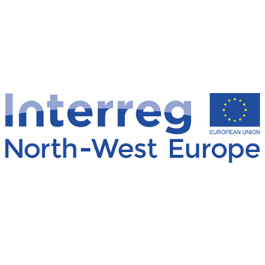
Seventh call for projects
Deadline: Apr 26, 2018
CALL EXPIRED
CALL EXPIRED
Low-Carbon Economy
Bioenergy
Raw Materials
Energy Efficiency
Eco-Innovation
Natural Resources
Renewable Energy
Interregional cooperation
INTERREG
The next call for project proposals will be open from the 26th of March to the 26th of April 2018.
1.1 Aim of the programme
The Interreg North-West Europe (NWE) Programme is one of the fifteen transnational cooperation programmes1 financed by the European Union. These programmes encourage public, scientific, private and civil society organisations to cooperate with a view to improving the economic, environmental, territorial and social development of Europe’s regions. The programme co-finances these organisations to work together in transnational projects on specific themes.
In contrast to programmes that target specific sectors (e.g. energy, transport, or research related programmes) or a single region, this programme focuses on cooperation across borders in a large European area; specifically, North-West Europe. Transnational cooperation is therefore fundamental for the programme and will be crucial in reaching stronger cohesion between its regions.
As the map shows, the programme targets all or parts of 8 participating countries, including 7 EU Member States (Belgium, the Netherlands, the United Kingdom, Ireland, Luxembourg, France and Germany) and the Non-Member State Switzerland.
The Member States of the NWE Programme analysed the strengths and weaknesses of the area and designed a strategy to address the challenges identified. The area’s characteristics and challenges are presented in the Cooperation Programme document.
The analysis identifies significant disparities in the economic, environmental and social performance of NWE’s regions. The aim of the NWE Programme is, therefore, to both reduce these disparities and raise the overall level of performance across the whole NWE area.
By doing this, the Member States aim to achieve the following overall ambition for NWE:
“To become a key economic player in the world and create an attractive place to work and live, with high levels of innovation, sustainability and cohesion”
To deliver this ambition, the programme has identified three thematic priorities, each of which is sub-divided
into specific objectives. These priorities and specific objectives (SO) are:
Priority 1:
Innovation
Specific objective 1:
To enhance innovation performance of enterprises throughout NWE regions
Priority 2:
Low Carbon
Specific objective 2:
To facilitate the implementation of low-carbon, energy and climate protection strategies to reduce GHG emissions in NWE
Specific objective 3:
To facilitate the uptake of low carbon technologies, products, processes and services in sectors with high energy saving potential, to reduce GHG emissions in NWE
Specific objective 4:
To facilitate the implementation of transnational low-carbon solutions in transport systems to reduce GHG-emissions in NWE.
Priority 3:
Resource and materials efficiency
Specific objective 5:
To optimise (re)use of material and natural resources in NWE
More details on the programme’s priorities and the types of actions it supports can be found in the Cooperation Programme document.
The programme has a budget of €372 million ERDF (European Regional Development Fund) available for projects. The maximum applicable co-financing rate for projects is 60% (ERDF). The programme will seek project applications through “calls for proposals”, which are usually organised biannually. More details on how to submit an application form can be found in chapters 3 and 4.
Projects should in the first instance identify and quantify as far as is possible the change and result they want to achieve and make sure these fit with the programme’s ambitions. Projects should bring together partners from at least three different countries, of which two need to be from within the NWE area. Every project that the programme finances will need to demonstrate high transnational cooperation intensity throughout its lifetime; this means that partners must work together to deliver, evaluate, disseminate and roll-out the results of their project. More details on how to develop a good project are given in chapter 2.
The Programme Manual is essential reading for any organisation wishing to participate in a NWE project. In addition, tailored support will be offered to all potential applicants (section 2.4).
Public link: Only for registered users
 Interreg North West Europe
Interreg North West Europe


Please Log In to See This Section